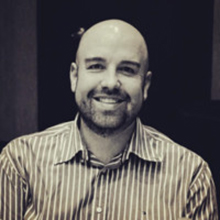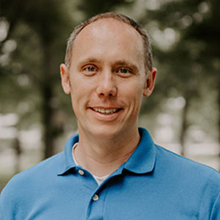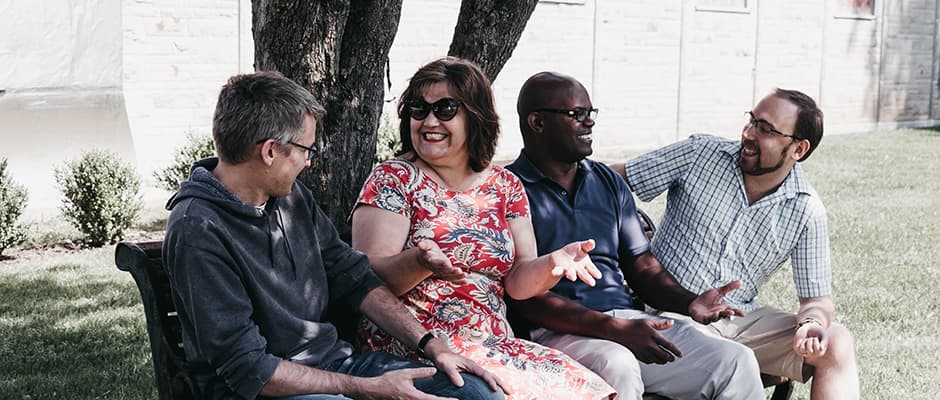The Doctor of Ministry (DMin) program at Tyndale Seminary combines academic research, spiritual formation and applied ministry strategies in a collaborative learning environment. Students can choose concentrations in preaching and non-profit organizational leadership or focus on the leadership and spiritual formation tracks. We interviewed two recent graduates, Dr. Chris Walker (DMin 2020) and Dr. J.L. Miller (DMin 2020), who was the 2021 Seminary valedictorian, to find out what they are doing now and how this program supported their personal and spiritual goals.
Thanks for joining us Chris and J.L.
First of all, tell us why you decided to pursue a DMin at Tyndale.
 Chris: I had wanted to pursue doctoral studies for many years and originally had gone to another university for its PhD program. It was a wonderful program, but after a year, I felt that it wasn't the right fit for me. Tyndale's DMin program was the right mixture of academic stretching and practical experiential learning and was packaged in such a way that it was manageable for someone in full-time ministry to explore. Ultimately, my calling is not to the academy but to the local church, and this program was perfectly suited for someone like me who was seeking further theological training but wanted an education that was conducive to real-life ministry.
Chris: I had wanted to pursue doctoral studies for many years and originally had gone to another university for its PhD program. It was a wonderful program, but after a year, I felt that it wasn't the right fit for me. Tyndale's DMin program was the right mixture of academic stretching and practical experiential learning and was packaged in such a way that it was manageable for someone in full-time ministry to explore. Ultimately, my calling is not to the academy but to the local church, and this program was perfectly suited for someone like me who was seeking further theological training but wanted an education that was conducive to real-life ministry.
 J.L.: I've always loved seminary, theological training and studying, and I thought I wanted to take another step, go further and explore more. It was a long process, more than 10 years of praying and searching and asking God, “Do I really want to do this? Should I do this? Am I doing this for the right reasons?” And I reached the point where I felt God saying, “I really want you to push toward this next level of training.”
J.L.: I've always loved seminary, theological training and studying, and I thought I wanted to take another step, go further and explore more. It was a long process, more than 10 years of praying and searching and asking God, “Do I really want to do this? Should I do this? Am I doing this for the right reasons?” And I reached the point where I felt God saying, “I really want you to push toward this next level of training.”
How are you currently serving in ministry?
Chris: I’m the Lead Pastor of Meadow Brook Church, an Anabaptist congregation in Leamington, Ontario. I’ve been on staff for seven years and have been the Lead Pastor since August 2019.
J.L.: I work at Houghton College, a Christian college in New York. It's a four-year private, liberal arts school. I teach Youth Ministry and Spiritual Formation in the Department of Theology and lead a discipleship class, campus ministry, and serve as the Associate Dean of the chapel.
How has having a DMin degree helped you?
Chris: My studies in Spiritual Formation gave much practical help to my own walk with Jesus, and it has transferred very easily to leading my congregation in their own spiritual formation journey. Digging deeper into the Scriptures and into practices such as prayer, listening and lectio divina has been very helpful.
J.L.: It helped me explore and engage with new resources, and this became important during conversations with students. For example, I’d be speaking with a student who was struggling with something in his local church, and I could point to an article or help him through it based on what I learned. It also helped form valuable connections. I use a book from Evan Howard (professor for DMin) in one of my classes, and we've developed enough of a friendship that Evan virtually joins our class when we're done reading the book. And Dr. David Sherbino recently visited our chapel livestream, and we interviewed him on death, dying and suffering.
The program wasn’t just about academics, it was also about my own formation. Who I am to the students is a closer representation to who God wants me to be. In other words, I've grown spiritually in such a way that when students come to me with difficult situations or desperate needs, I'm not just handing off resources, but who I am and how I am able to reflect God's love to them has grown. So, it's been resources, relationships and personal spiritual growth.
What was your cohort and the faculty like?
Chris: Working with teachers and classmates from a variety of walks of life and churches was incredible! I remain close to my cohort and we keep in touch regularly. I found lifelong friendships in the group.
J.L.: Starting from the very first week, we had these moments in class where people started sharing more of their lives and their spiritual journeys, and it became apparent that God had pulled us together; we still stay in touch. There are faculty members I interacted with, who were absolute geniuses but who were also loving, kind, gentle, thoughtful people, who took their own spiritual formation seriously. I just grew so much.
Finally, what would you say to someone who is considering pursuing a DMin degree at Tyndale?
Chris: Tyndale offers an amazing program that will impart to you theological knowledge from Christ-centred experts, practical experience within your ministry context, rich Christian community with other seekers of Jesus and a well-rounded education that finishes with a doctorate at the end of it. I can't recommend this program highly enough.
J.L.: Tyndale is blessed to be situated in Toronto where there's great cultural diversity. I formed friendships with people from all over the world in my cohort, and it was really refreshing to hear different approaches and vantage points. As someone from the States, I feel like Tyndale is a treasure that's just right across the border. I wish that pastors in the U.S. who were considering pursuing DMin would include Tyndale on their shortlist as they're prayerfully exploring options because it’s a really beautiful, enriching place.
